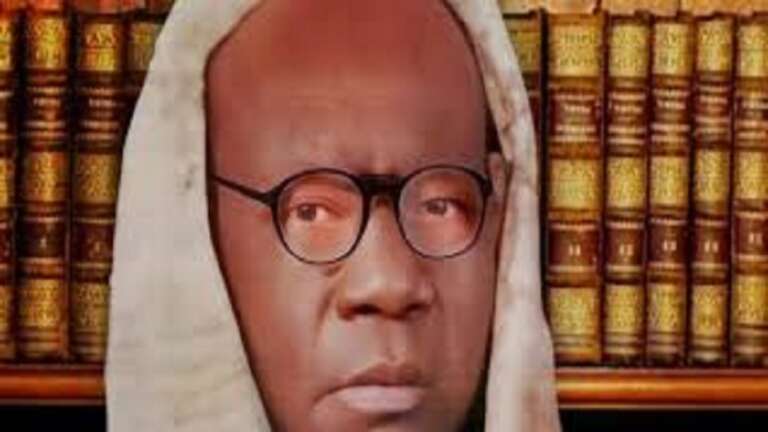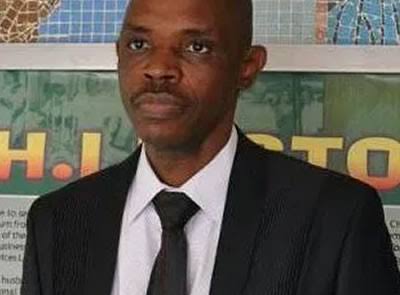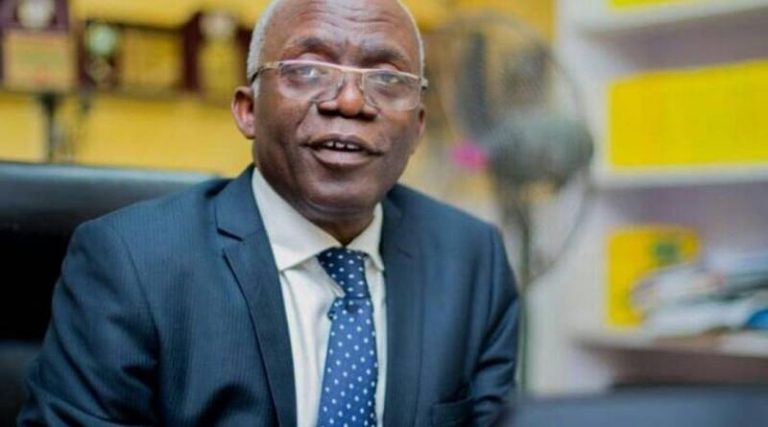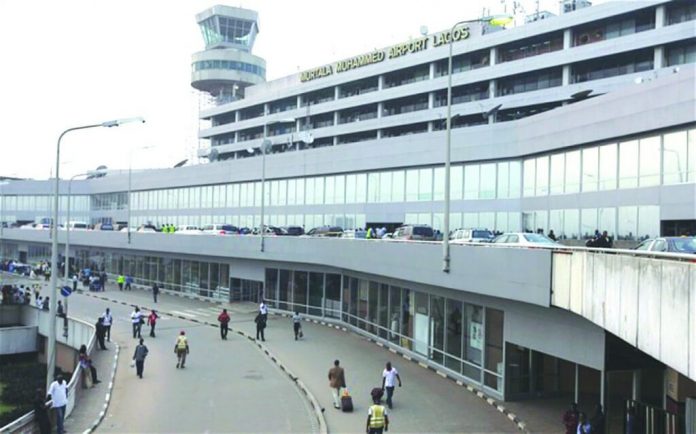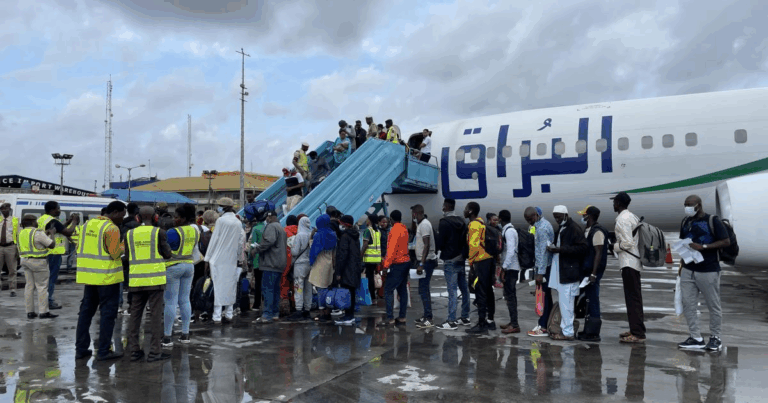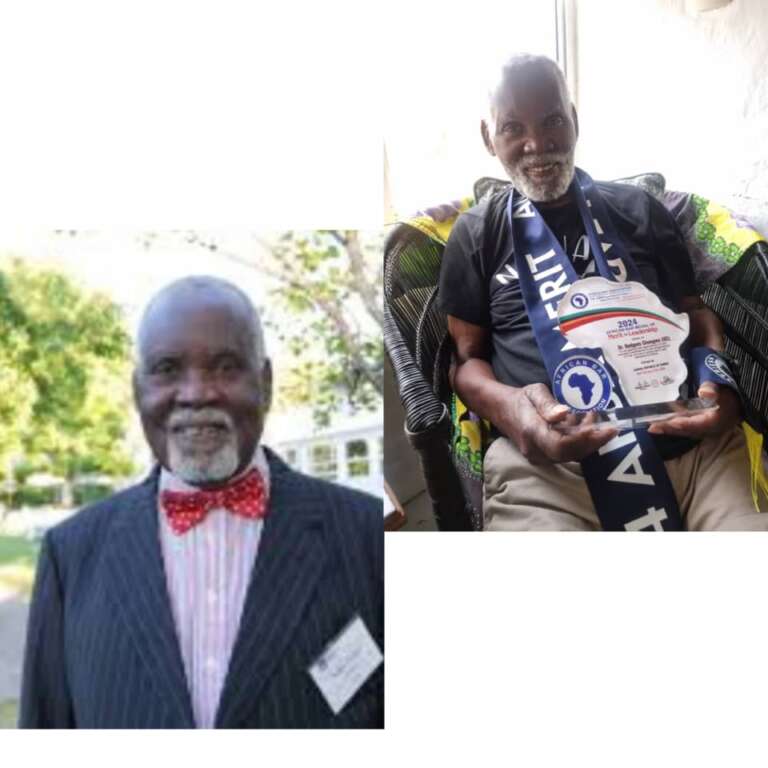By Oghenetega Urherebrume
Each year, desperate Nigerians, especially women, naively entrust their lives to traffickers who promise a better life in Libya. Fuelled by hope, they embark on perilous journeys through deserts and irregular routes, only to end up in hellish detention camps, held in inhumane conditions.
While many are trapped in cycles of abuse, imprisonment, or killed, a few return home traumatised and broken. Oghenovo Egodo-Michael writes that for these survivors, healing is a painful journey as it is marked by deep emotional scars and the relentless struggle to rebuild their lives
In 2014, Lara stood at a crossroads, unaware that the path she was about to tread would spiral into the darkest recesses of human suffering.
The oath she took that day, sealed with a bizarre concoction, seemed like a minor ritual, a strange but necessary formality on the road to rewriting her destiny.
For the single mother in her mid-20s, the journey to Libya was meant to be her golden ticket, a desperate yet determined attempt to build a better life for her child.
She had taken the oath alongside four friends, but when it came to paying the travel agent, she was the only one who could afford the fee.
The others dropped out, and Lara, fuelled by hope and a mother’s grit, pressed forward, entrusting her future to Festus, the travel agent who had promised her a bright new beginning.
“I didn’t even know it was an oath-swearing until we got there,” Lara recalled. “We swore never to betray or report them. We swore to pay the money back, no matter what happened. We were told not to speak about the plans with anyone until the journey was complete. Then came this odd concoction, some kind of sauce mixed with dried fish. They claimed it was made with shredded new naira notes. Looking back now, I think it was all a psychological trick, something to instil fear.”
Before then, Lara had worked at parties, managing food and drinks. It was through those gigs that she met Festus at a friend’s business launch.
His smooth tongue and seemingly genuine interest in her aspirations drew her in. “He had visited my place once. We talked about our dreams. I told him I wanted to go back to school, study abroad someday. He listened. He told me it was possible,” she said with a smirk.
With her daughter’s father absent and no one else to depend on, Lara had ventured into the events business to stay afloat. But she craved for more, a new start, a bigger life.
So when Festus called one day and told her a man in Malaysia was helping people travel, she saw it as her chance.
“I didn’t even have the full money,” Lara said, “but the agent told me I could pay whatever I had.”
On the day of departure, Lara was brimming with anticipation. She imagined Europe, education, and a career. But as the journey unfolded, the cracks began to show.
She joined others travelling by road, through treacherous back routes that linked one West African country to another.
The conditions quickly descended into a nightmare: scant food, little water, no clear destination. The air was heavy with confusion, illness, and the rising stink of despair.
In Agadez, a desert town in Niger Republic, infamous as a hub for human trafficking, Lara’s illusions began to collapse. Whispers from fellow travellers chilled her blood.
“At first, I wasn’t too worried. Festus had said part of the journey would be by road, the rest by flight. But days turned into weeks, and nothing made sense anymore. There were too many stops. We were moved like cattle. One day, I listened closely to what others were saying. Some talked about going to Italy, some to Libya, others had no clue. ‘My aunty said this… my brother promised that…’ That’s when I realised no one truly knew where we were headed.”
Terrified, she asked one of the travellers, “Where exactly are we going?”
The reply was chilling: “If you no know where you dey go, just dey look. No be me go tell you.”
Fear clawed at her chest. Thoughts of escape flashed through her mind, but another warned her, “If you try to run, they’ll know. They might kidnap or kill you.”
By the time Lara reached Libya, the truth was horrifying.
The woman she was handed over to, the burger, spelt it out: all the promises were lies.
“She looked us dead in the eye and said we were brought to work in a connection house, a brothel. She laughed when I told her I thought I was coming to work in a restaurant and would be going to school. Another girl thought she would be a housemaid. It was all fake. We had to work as sex workers and pay back N5m, or N2.5m if we could pay upfront.”
Lara’s soul shattered. She refused to trade her body, but refusal came at a cost. They beat her relentlessly and mercilessly, every day for five months, until resistance was wrung out of her body.
The connection house was a prison draped in the disguise of business. Three flats stood like tombs—each with a grim function. One was a waiting room where the girls stayed; another was for the “work,” with a final room serving as a grotesque lounge for customers to eat and wait. The men came from everywhere; there were Lebanese, Somalians and Ghanaians. If a girl said no, she was beaten until a yes was forced out of her mouth.
For Lara, the pain of her physical torment paled in comparison to the emotional scars.
Dreams of a better life, education, and freedom slowly faded as she became trapped in the cycle of exploitation, her mind and body reduced to nothing more than commodities in a foreign land.
Harrowing journey
“The food was barely edible. Every night it was banku, and in the mornings, rice or spaghetti if we were lucky. If you wanted anything else, you had to earn it, through sex or from men who fancied you enough to bring snacks. We were trapped in a place they called ‘the garage’, a slum overrun by drug dealers, cultists, and criminals. It was haram in Libya, but the entire neighbourhood knew what was happening,” Lara recounted.
They pumped them full of drugs and alcohol. There was no medical help, no dignity, no humanity.
“They forced things into our systems, drinks and pills. We had to hustle for customers like it was a job. My burger called me ‘virus.’ Even when we were sick, there were no doctors. If you weren’t dying, you just had to endure,” she added.
For two brutal years, Lara survived unimaginable torment. Her body bore the bruises, but it was her spirit that came closest to breaking.
Then, in October 2016, a miracle happened. A customer took pity and helped her escape.
By August 2017, Lara finally made it back to Nigeria. But she did not return as the same woman who had left.
She came back with scars, some seen, most buried deep within her psyche. Her dream of a brighter future had turned into a nightmare, her trust weaponised against her.
The necessary evil
Cross-border migration for work has long been a hallmark of global inequality. For women like Lara, economic hardship, maternal responsibility, and a yearning for self-betterment make them vulnerable to traffickers who exploit these dreams.
As the world grapples with uneven development, demographic shifts, and widespread poverty, stories like Lara’s remain common, hidden in silence and wrapped in shame.
Socio-economic factors driving human trafficking
A seasoned sociologist and expert in criminology, Professor John Gyong, has extensively studied human trafficking in Nigeria.
His research sheds light on the socio-economic factors driving this illicit industry, particularly the trafficking of women.
Gyong explains that human trafficking has become a lucrative business, especially for women.
He said, “Some women knowingly choose this path, fully aware of what they want, while others are deceived by promises of a better life, especially in Europe, where they are told wealth and success are within reach with minimal effort.
“Economic hardship in Nigeria forces many young girls to see their bodies as their only asset.
“In a country where opportunities for prosperity are scarce, these girls turn themselves into commodities. To be marketable, they must possess physical beauty and be considered ‘sellable’ in this underground economy. This is why the women trafficked are often very young.”
Through his research, Gyong discovered that human trafficking thrives in regions like Benin and Kano, where different models of trafficking operate.
“In these areas, women are coerced into taking blood oaths, binding them to silence and obedience to their traffickers. Many of these women end up in Libya, where the conditions are grim. Libyan authorities are hostile and view Nigerians with distrust, making the ordeal even worse,” the don stated.
Gyong, while describing the harrowing experience of Nigerian women trafficked to Libya, said they endure unspeakable suffering at the hands of both authorities and traffickers.
“Survival is a matter of resilience. Some women make it through, but many end up in Libya’s prisons, one of the most desolate places in the world, where they are subjected to dehumanising conditions,” he explained.
Prisoner in a foreign land
At the age of 17, Precious Williams set out from Nigeria, full of hope and ambition, unaware of the horrors that awaited her.
Fresh out of secondary school in 2019, she was eager to start a new life abroad. Her father, believing the lies told by her stepmother about Libya being a land of opportunity, consented to her departure.
“My dad thought that if I spent a year in Libya, I’d return with enough money to change our lives,” she recalled, her voice tinged with regret. “But everything was a lie.”
Her journey to Libya in 2021 turned into a nightmare. Precious endured a gruelling, one-and-a-half-month journey across desolate deserts, her body pushed to its limits as she travelled in a cramped Hilux truck with other hopeful migrants.
Starvation, fear, and uncertainty were her constant companions. The worst came during a raid by the police in Agadez, where chaos erupted.
“I was asleep when the police arrived. I didn’t even understand what was happening. The truck almost ran over me,” she recounted, her voice barely above a whisper.
But the true tragedy struck in the desert. “My friend died there. She was the only child of her parents and thought she was heading to Europe for a better life. She fell ill and begged for water. One night, the cold wind blew, and by morning, she had frozen to death,” Precious said, her eyes filled with tears.
Upon arriving in Libya, Precious faced an even bleaker reality. She couldn’t find the people she had hoped to meet, her stepmother and sister, and instead, she was sold to an Arab employer.
Forced to work in hospitals and schools, she endured constant mistreatment. She eventually bought her freedom, settling a debt of nearly N2m, which allowed her to start working independently.
But this brief taste of freedom came at a steep price. After resisting sexual advances from her stepmother’s husband, she was thrown out onto the streets at midnight.
“I had no choice but to find somewhere to stay,” she explained.
Her ordeal continued when the house she rented was raided by police, leading to her arrest and imprisonment in a Libyan prison.
“The prison was hell. It was like being in hellfire. I can’t even describe it,” she said, trembling.”
“There were thousands of people crammed into overcrowded cells, men, women, and children. Some women gave birth in prison, only to be tossed back into their cells afterwards. The babies were given nothing but bread soaked in water.”
Precious’s suffering didn’t end with her imprisonment. “When my period came, I had no choice but to tear up my clothes and use them as makeshift sanitary pads. That was all I had,” she said, her eyes brimming with unshed tears.
The young lady spent over a month crying in prison, reflecting on the life she had left behind in Nigeria.
“I thought about how I had everything back home and now, here I was, in this nightmare,” she said, shaking her head. “Nothing I experienced in Libya compared to the horror of the prison. That was the real hell.”
Miraculously, Precious reunited with a long-lost friend in prison, someone she had not seen in over a year. Fearful of dying in the hellish conditions, Precious registered for deportation with the International Organisation for Migration.
And in January 2024, she returned to Nigeria, penniless, broken and battered.
“I’m healing, little by little, but it’s still hard to forget,” she said.
Forced displacement
As the global refugee crisis continues to worsen, the United Nations estimates that in 2024, there were 304 million international migrants, with 167.7 million international migrant workers making up 4.7 per cent of the global workforce. Women and girls, especially those from conflict-prone areas in some parts of Nigeria, are disproportionately affected by human trafficking.
According to the International Organisation for Migration, over 20,000 Nigerians have voluntarily returned home, with women and girls constituting 88 per cent of the returnees.
Among these, Libya has emerged as a major hotspot, accounting for 53 per cent of the exploitation cases, followed by Mali at 29 per cent.
The organisation noted that these numbers highlight the scale of the trafficking problem and the desperate need for more comprehensive solutions.
Trapped in Libya
On February 27, 2025, at 4:14 PM, Titi, a single mother, made a desperate plea for help, recounting the horrors faced by Nigerians abandoned in Libyan prisons.
The 30-year-old mother shared with Nigerians the agonising four months she spent in a Libyan prison, an experience that nearly drove her to madness.
“I am a single mother of one. I spent four months in prison before I was deported. My friends tried to bail me out, but it was impossible. There are too many Nigerians in prison, and some have already lost their sanity. Some who were supposed to be deported couldn’t because they couldn’t sign the Terms and Conditions form,” Titi explained, her voice filled with emotion.
She described her harrowing journey to Libya in 2022, after paying a broker for one year and six months of work, only to be sold into slavery.
Recalling a day she was arrested by the police, Titi said, “One day, I went out with my new boss. When we returned, we found the police waiting for us. My neighbours had fought, and someone had called the police.
“We barely got home when we heard a knock on the door. The police handcuffed us before we could speak, demanding money. They confiscated our phones once we arrived at the prison.”
Titi reached out to our correspondent to shed light on the plight of many Nigerians trapped in Libyan prisons.
“No one knows what happens in these prisons. When they arrest you, they take your phone. The food we’re given is laced with drugs. In the morning, we get a portion of rice with sauce, worth about 100 Naira. At night, it’s watery macaroni. After eating, your throat feels weak. Some try to go to the toilet but collapse from dizziness. On January 1, while others celebrated the New Year, some died. Another death occurred the next day. In Libya, they can break into your house, take your money, and throw you in prison without committing a crime,” she said bitterly.
Titi also shared that her menstruation stopped from the moment she entered prison.
Failure of Nigerian Embassy
Titi relentlessly criticised the Nigerian embassy in Libya, accusing them of neglect. “What I want you to know is that the Nigerian embassy isn’t doing anything there. Other embassies visit and care for their citizens in prison. But when the Nigerian embassy officials come, they bring nothing.
“They only ask who wants to register for deportation, and that’s it. Sometimes, they register 150 people, but only bring names for 60 and collect money from others who aren’t even in prison.
“They claim the documents for others registered aren’t ready. The embassy is only good at sharing money. Even the Libyan officials tell us it’s our own officials causing the problems. Many African nationals are rotting in the same prison, from Sudan to Niger.
“Any time the Gambian embassy visits, they bring bedsheets, toothpaste, and even food like milk for their citizens. But the Nigerian embassy officials would just show up, sometimes we won’t even know they came. I was deported with mothers holding their children and pregnant women,” Titi said, weeping.
She also revealed the despair of some Nigerian women trapped in prison.
Mental strain of human trafficking
A professor of Psychology at Obafemi Awolowo University, Ile-Ife, Toba Elegbeleye, discussed the severe psychological toll of being trapped in confinement.
He explained that such experiences could make a person mad.
“It creates immense stress, leaving you disoriented and completely out of sync. You are denied freedom, placed in a foreign land with no hope of escape. Once you’re robbed of your basic rights, you are left to rely on divine intervention for any sense of relief. It can certainly cause loss of sanity.”
He, however, noted that some returnees of African descent often recover more quickly than those from other parts of the world because African culture is deeply accommodating and flexible.
“While some returnees might face discrimination, society generally embraces them. Even if they’ve violated some of our most cherished norms, our culture doesn’t quickly reject our own. There may be reprimands, guilt, or tough conversations, but ultimately, African culture welcomes returnees and thanks God for their safe return.”
Nigerians in Libya: Political instability and migrant struggles
Mike Adeyemi, known as Immabee, a house painter and content creator based in Tripoli, Libya, shared insights into the challenges faced by Nigerians in the country.
“I assist various countries on a turn-by-turn basis. Many individuals in prison have been abandoned, with the embassy rarely visiting them. These individuals’ only hope lies in if IOM reaches out. Many are in camps because they can’t afford rent, have been stranded, or were kidnapped,” he explained.
Immabee also revealed that Libyan police rarely investigate incidents thoroughly and often round up people indiscriminately.
“While some detainees may be guilty, many are innocent,” he added.
Despite prostitution being illegal, Immabee noted it thrives due to political instability and division in the country.
He said, “Prostitution is illegal in Libya, a Muslim country, with penalties of up to seven years in prison. However, powerful groups have destabilised the country, creating regions ruled by different factions. Corruption has thwarted efforts to unite and hold elections.
“Some areas are controlled by drug lords or those involved in prostitution, each with their own police force, making it nearly impossible for outsiders to intervene. For women trapped in these situations, escape is incredibly difficult. During Gaddafi’s regime, foreigners, especially Nigerians, had more freedom. Unfortunately, the country has been in conflict for nearly a decade.”
NIDCOM warns against irregular migration
The Nigerians in Diaspora Commission has issued a stern warning to Nigerians, urging them to avoid illegal migration.
The commission emphasised that when citizens find themselves in vulnerable situations due to irregular migration, the government cannot be held responsible.
The commission’s spokesperson, Abdur-Rahman Balogun, reiterated that Nigerians should migrate through legal channels.
“We have always advised Nigerians to migrate lawfully. When you migrate irregularly or illegally, you’re treated like a criminal, with no integrity,” he stated.
On the issue of Nigerians being stranded abroad, Balogun said, “They put themselves in this situation, and we didn’t know when they left. How could we know they were uncomfortable or abandoned in foreign countries?”
He said, despite challenges, NIDCOM has made significant efforts to assist citizens in distress.
“In the last six years, over 20,000 Nigerians have been evacuated from Libya, even though it is not our responsibility to carry out such evacuations. From January to March 18 this year, 956 Nigerians were brought back home with the help of the IOM and other relevant agencies,” Balogun said.
He also highlighted the grim reality of young Nigerians, particularly girls, being trafficked for prostitution.
“In Ghana alone last year, we helped bring back nearly 300 girls, aged between 13 and 21, who had been lured into prostitution. Some even sold family property to fund their journey,” Balogun revealed.
He advised Nigerians who find themselves in distress abroad to approach the Nigerian embassy or high commission for help.
“However, many victims are often hesitant to seek assistance due to fear. The traffickers often confiscate their passports, leaving them with no documents to prove their nationality. But the embassy will ensure that a true Nigerian is identified,” he assured.
Balogun further encouraged stranded Nigerians to use alternative communication methods if they do not receive adequate assistance from the embassy.
“This is the age of ICT. If they turn you down, you can email NIDCOM or the Ministry of Foreign Affairs. We respond appropriately to complaints,” he said.
This article, written by Oghenetega Urherebrume was culled from The Punch Newspaper of 10th May 2025.

